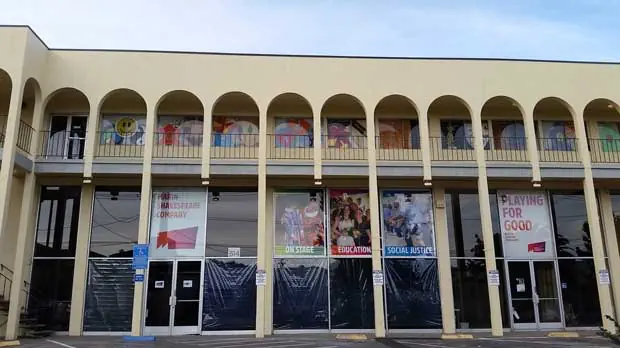
Alexandra Fradelizio | m/Oppenheim.Org Writer
“To be, or not to be: that is the question.”
“All the world’s a stage, and all the men and women merely players.”
“Some are born great, some achieve greatness, and some have greatness thrust upon them.”
Arguably the most widely recognized lines in the English language were written by William Shakespeare. More than 400 years after his death, the 39 plays and 154 sonnets written by the Bard of Avon have been translated into every major living language. With more than 4 billion copies of his works sold across the world, Shakespeare lives on, inspiring countless audiences, readers, and students.

“He was able to express the depth and complexities of human emotions and motivations better than almost any writer,” states Lesley Currier, Managing Director of the Marin Shakespeare Company.
“Our mission, with Shakespeare as our inspiration, is to serve as a vibrant catalyst for cultural engagement, education, and social justice.”
Currier, along with her husband, Artistic Director Robert Currier, produced the organization’s first Shakespeare play 30 years ago at the outdoor Forest Meadow Amphitheatre on the campus of Dominican University of California. The stage was specifically built for Shakespeare festivals and has featured dozens of plays during the summer months. This year, the Marin Shakespeare Company’s play season began with “Measure for Measure” and will conclude with “A Midsummer Night’s Dream.”
The organization has extended its presence beyond the stage to provide a rich education in a variety of different settings. Since its inception, the Marin Shakespeare Company’s education program serves 5,000 students each year through in-school programs, summer camps, and internships with college students majoring in theater. The classes offered to public middle and high schoolers are designed “to either support the work English teachers are doing in their classrooms or to encourage them to realize that teaching Shakespeare can be fun,” says Currier. In order to grasp the power of the Bard’s eloquent yet often befuddling words, the students perform the plays in class and are invited to see their favorite characters come to life at the Forest Meadow Amphitheatre. The Teen Touring Company also teaches students how to perform Shakespeare plays in settings ranging from schools to nursing homes, inspiring and entertaining diverse audiences.
Arguably Marin Shakespeare Company’s most innovative educational program has been its work with incarcerated individuals. In 2003, the organization started the class with prisoners at the notorious San Quentin State Prison. The prison, which is the oldest in the state and has the only death row for male prisoners, did not warmly receive the program as only three men initially joined. Eventually, more inmates became involved, and they performed a full-length Shakespeare play at the prison. Since then, the program has sky-rocketed in popularity with two plays being performed each year, and participants are now writing autobiographical stories that mirror the open-ended and powerful themes presented in Shakespeare’s works.

In the years since its inception, the state of California recognized the Shakespeare program for improving the mental well-being of its prisoners. The drama embedded within the plays, explains Currier, creates a cathartic experience for the incarcerated actors who are often taught to suppress deep emotions and feelings. Many participants have dropped out of gangs, enrolled in college classes, or have reunited with family members. Due to its successes, Marin Shakespeare Company implemented the program in 11 prisons throughout the state and will expand to 13 by the end of the year, making it the largest provider of the playwright’s works in prisons. The performances that take place within the prisons are often recorded and are shown alongside other play renditions and movie adaptations, inviting audiences to contemplate how the classical stories are relevant in today’s modern world.
“Some people are shocked to hear the United States has 5 percent of the world’s population [yet] 25 percent of the world’s prisoners and incarcerates more individuals than any other country on this planet,” states Currier.
“It’s amazing to me that our love of Shakespeare has taken us to a place where we’re able to use Shakespeare as a tool to really shine a light on what I consider one of our country’s biggest social problems.”
The Marin Shakespeare Company also spotlights the problems surrounding the justice system and other societal issues at its Forest Meadow Amphitheatre. The organization’s production of “A Midsummer Night’s Dream” will feature two previously incarcerated actors, and the remainder of the cast is comprised entirely of people of color. Dameion Brown, who will be playing Oberon, was serving a life sentence at Solano State Prison when he became involved in the Shakespeare program. After receiving an early release, he became a professional actor, starring as the title character in an “Othello” production and has since worked with the Marin Shakespeare Company on an annual basis. Among other recognition, Brown won the Bay Area Theater Critics Circle Award for Best Actor and will begin filming his first feature film in the upcoming months. Additionally, the play will star LeMar Harrison as Puck, who was released from San Quentin last year after participating in the Shakespeare program for 6 years.
In order to expand upon its mission to entertain, educate, and bring about social change, the Marin Shakespeare Company is raising money to create a permanent indoor center for performing arts productions and classes. The organization has already raised $4.2 million of its $6 million goal, a milestone that is already applauded given the numerous financial challenges associated with running a small theater.

“We look forward to it being a place where we can explore issues that are important to us through theater,” states Currier on the new center.
Currier explains that her personal connection to Shakespeare existed long before her involvement with the Marin Shakespeare Company. First reading “Romeo and Juliet” in middle school and then studying theater at Princeton University, she considers herself an “ongoing student” by learning about Shakespeare through the knowledge and eyes of others.
“It’s just been a joy to share my deepening knowledge because you can never know everything there is to know about Shakespeare.”
With the organization in its 30th year, Currier and the rest of the staff at the Marin Shakespeare Company seek to strengthen their community by finding individuals who are passionate about theater and Shakespeare himself. In addition to their new performing arts building, the company also wants to expand its prison curriculum across the country to raise awareness about mass incarceration. The program may also include work with at-risk youth and children of incarcerated parents.
Despite the hundreds of years separating Shakespeare himself from the modern world, the Marin Shakespeare Company illustrates the poet and playwright’s vital presence in inviting audiences to examine their own lives and the society in which they live.
“I think that Shakespeare is for everybody and that everybody can find something in Shakespeare that resonates and inspires them,” says Currier.
“In relating to these very richly drawn out characters, we learn about our own selves.”
Learn more about the Marin Shakespeare Company and Donate.
